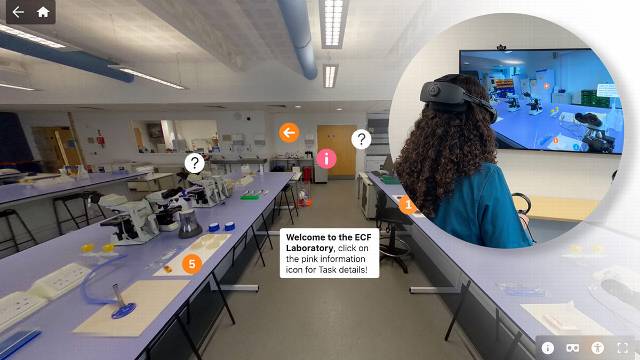
The relationship between agriculture and food production is ever evolving, with growth and sustainability great talking points for the industry. In light of documentaries and discussion around the food market making it to the national level, we're engaging with the debate, asking students to consider the wider impact and how we can change stereotypes through education.
On campus, research in the food sector is growing, with a focus around data to drive results in quality, usability, and public health. Annette Creedon, head of Food Science and Agri-Food Supply Chain Management, spoke about public sector interest in food saying, "People are still mostly interested in the effect of what they're eating - on themselves and the wider world. We have staff and students covering a wide range of research projects about how farming can be sustainable, working to challenge preconceptions with founded research."
With the release of the National Statistics regarding the food chain, we can see that £121 billion of Gross Value Added in 2018 came from the agri-food sector, with productivity rising by 1.5%. People continue to invest in farming, despite the mixed reaction to recent controversies.
Likewise, SMEs are the largest sellers in the food sector, accounting for 96% of businesses. Some of our Harper Adams students are part of this, including Butterbelle, RK Vodka, Millbank Farm Shop, and Buckley's Bees. From this statistic, 4.1 million people in 2018's fourth quarter alone are working in the food sector; with so many jobs between field and fork, there are many ways in which people can join the conversation, creating a more informed forum to discuss the issues of sustainability openly.
If you are interested in reading more around the National Statistics food report, you can read it here. Likewise, if you would like to find out more about our food courses here at Harper Adams, you can view our course page here.
 Blog: Veterinary Medicine students step into immersive 360° laboratory
At Harper & Keele Veterinary School, students are stepping beyond the traditional microbiology bench and into an immersive 360° labo …
Posted
Yesterday
Blog: Veterinary Medicine students step into immersive 360° laboratory
At Harper & Keele Veterinary School, students are stepping beyond the traditional microbiology bench and into an immersive 360° labo …
Posted
Yesterday





